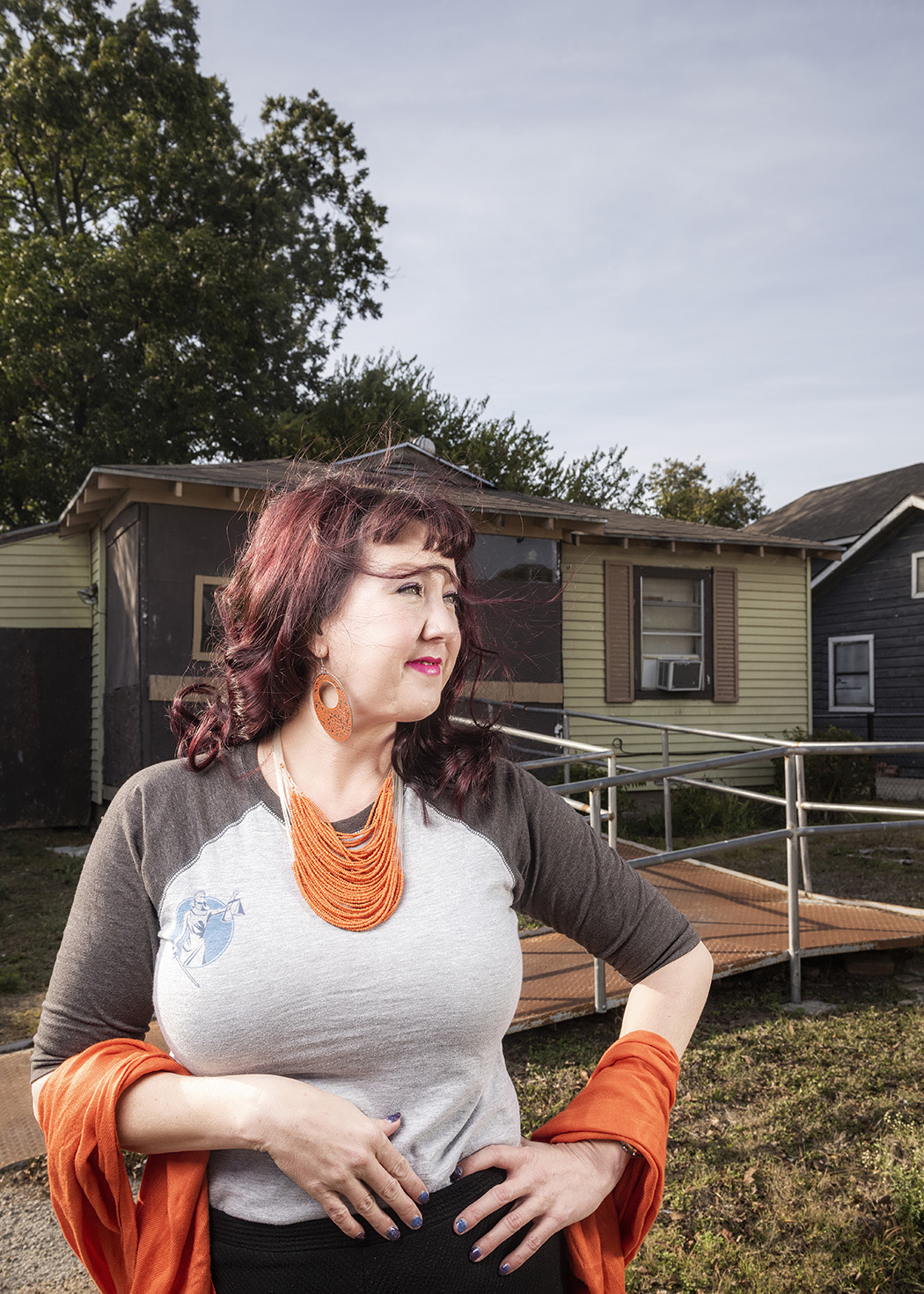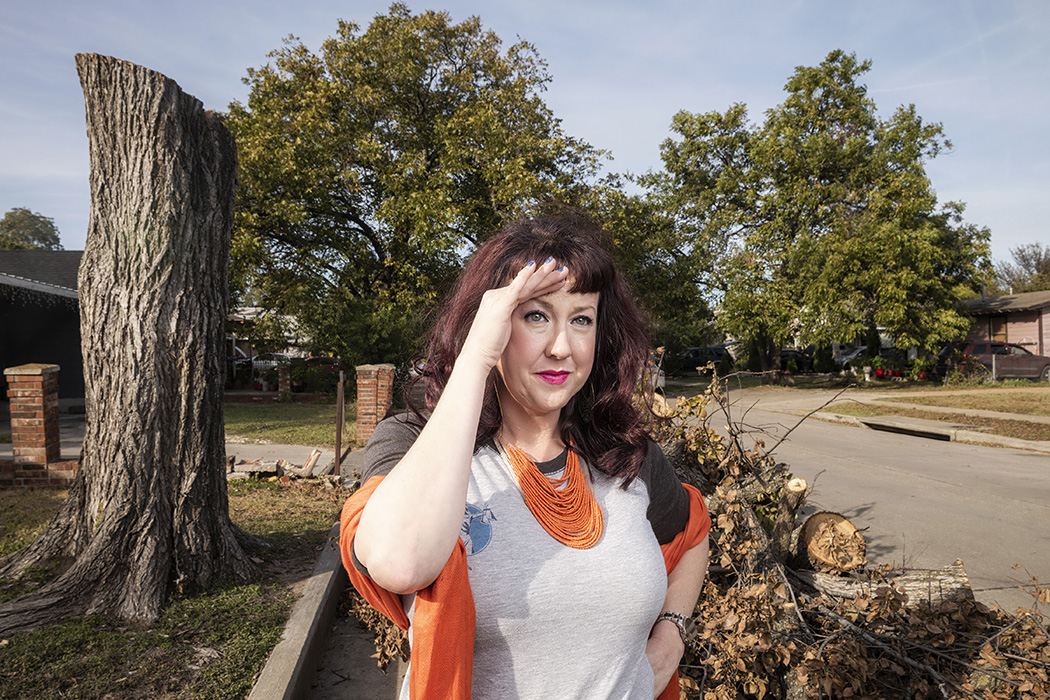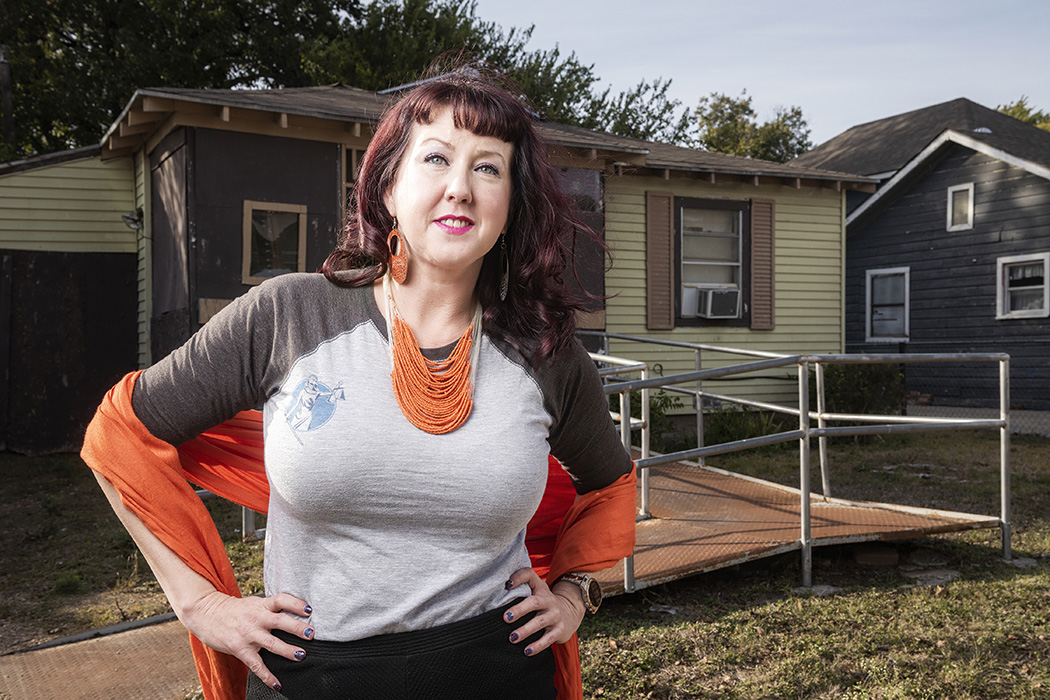Oak Cliff-based attorney Lauren Cadilac earned her real estate license at 19, becoming one of the youngest agents in her home state, Arizona.
She later earned a law degree as a single mom, and her small law firm, Cadilac Law LLC, recently won a contract with the City of Dallas to help residents clear up cloudy home ownership.
Cadilac handles all kinds of real estate law, from contractor disputes to estate planning. Most problems with residential real estate occur when someone dies, she says.
Much of her practice deals with families that need to clarify ownership of real estate, sometimes years, decades or generations after the original homeowner dies. Sometimes when one parent dies, everyone assumes that ownership of property automatically transfers to the other spouse.
“It doesn’t automatically do anything,” Cadilac says. “That’s not how it works.”
Cloudy titles have led to dilapidated houses being torn down in the Tenth Street Historic District because of code violations, and it affects the city’s stock of affordable housing. Tangled titles can cause families to lose their properties, or at the very least, cause a lot of stress and legal fees. It can be difficult to untangle even in cases when there is a will.
The city realized, through a program that helps seniors with home repairs, that a lot of low-income seniors don’t own their informally inherited homes. So many that it’s epidemic, Cadilac says.

Photography by Danny Fulgencio
In October, City Council approved a $200,000 pilot program where low-income residents of southern Dallas can apply for legal aid to clear up their home titles.
Cadilac says she has no idea how many cloudy titles there are in Dallas, and neither does the city. A search for “estate of” in the Dallas Central Appraisal District database comes up with more than 30,000 hits.
“A big piece of this is collecting the data so they can find out how big the problem is,” she says. “I’m excited about that because I’ve been wondering all along how big the problem is. A lot of large cities have this problem.”
She estimates that she’s handled about 1,000 cases of unclear title. The vast majority of her clients are African American Baby Boomers in Oak Cliff who live in houses informally passed down from their parents or grandparents.
Cadilac began building her law practice on property tax protests in 2014, after she protested the valuation of her own house in Ravinia Heights. A year out of law school, Cadilac went into the hearing with Law & Order swag.
She’d bought the house for $180,000, and she was able to argue her valuation down to $156,000, about $4,000 less than the previous owner’s valuation.
“I was really proud of myself. I was just brushing my shoulders off,” she says. “And, in fact, the board, the three guys, they were like, ‘you’re really good at this.’ ”
She started telling people at networking mixers, “by the way, I also do property tax protests.”

During the following protest period, she made several thousand dollars on the side of her full-time job all from that word-of-mouth. She’d hit on something she enjoys doing that also fills a gap in the market, and she went into solo practice, starting out of her house.
Cadilac Law recently moved from an office in Elmwood to a high-rise building on Hampton Road at U.S. 67.
“Before I was doing real estate law on this side of the bridge in 2016, there was no one else,” she says. “I’m the only one. So I saw that need.”
Even for those with assets as few as one house and one car, dying without a will can leave a huge mess for those left behind, she says.
“I’d rather do your estate plan now while you’re alive then have to do it on the back end,” she says. “It’s going to cost your family a lot more.”
The pilot program Cadilac Law is taking on, with help from city staff, serves Oak Cliff, East Dallas, Pleasant Grove and West Dallas.
Besides clearing up titles, they’ll offer some estate planning as well as free public seminars to help families secure their estates.
The seminars are expected to start in January, and Cadilac says they plan to do them at least one a month at churches and community centers in their target neighborhoods.





